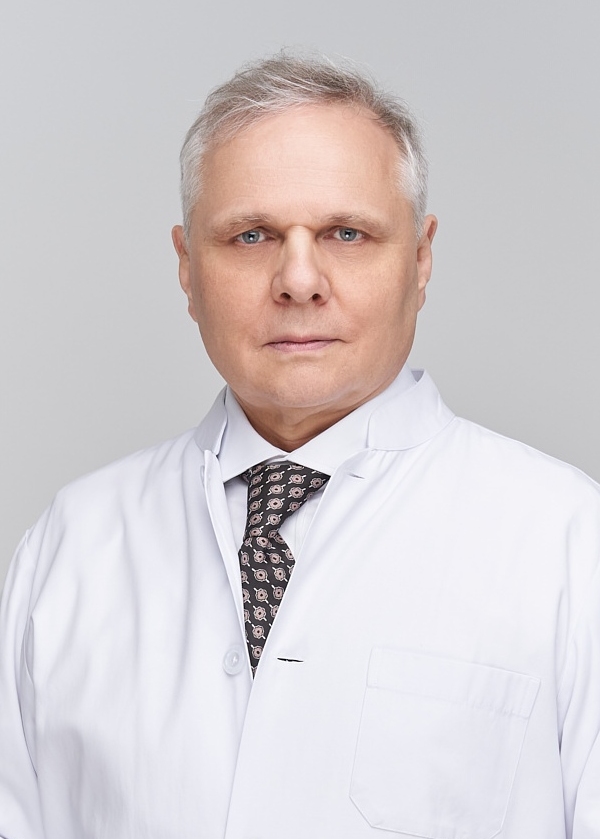
Entering recovery from addiction and dependency is a life-changing step for individuals suffering from substance use disorder. Understanding relapse prevention in addiction is crucial, as once a dependency has developed, even minimal contact with the substance can trigger a relapse, potentially bringing the person back to “square one.”
There are often identifiable warning signs that precede a relapse and lead into the relapse episode itself. Relapse prevention is based on social learning theory and cognitive-behavioral therapy (CBT). The core idea behind this approach is that individuals can learn new skills and develop healthier behaviors. Central to this process is changing the way they perceive and respond to challenging situations.
Craving and Relapse
Addiction-related detrimental processes occurring in the body are complex, as they normally result from the interaction of
- genetic effects/predisposition (such as initially abnormal functioning of the brain pathways even before the very first dose) and
- environmental factors (e.g. social environment and stress).
These interacting effects can cause alcohol cravings and relapses long after a person is not physically dependent anymore. Thus, adequately planned relapse prevention is crucial for alcohol addiction recovery. The process of planning the rehabilitation steps should be initiated during and immediately after closing the process of alcohol detoxication.
In a substance use disorder, addiction tends to co-occur with dependence. Nevertheless, a person may remain addicted long after they are not physically dependent anymore. Therefore, comprehensive relapse prevention is critical.

Warning Signs of Relapse
Psychologists educate the patient during counselling, and the patient learns to identify the warning signs of entering or being in a risky situation. A psychologist assesses and enhances the patient’s ability and motivation to cope in such a situation. Additionally, self-efficacy-enhancement procedures help a patient improve his sense of mastery and of being able to cope with difficult situations without relapsing. The patient will benefit from a client-psychotherapist relationship that is collaborative rather than “top down.” Psychologists make patients aware that RP is an acquisition of skills and not a test of willpower. Patients are made aware during counselling to set small, doable tasks to increase a sense of self-efficacy. Lastly, psychologists, psychotherapists and counsellors can focus on general accomplishments to increase a patient’s sense of mastery in general and to achieve a carry-over effect into drug and alcohol-related efficacy (Larimer et al., 1999).
Relapse prevention includes speaking about a patient’s subjective expectation of the effect of alcohol. Often, positive expectations of the outcome of drinking are based on myths or placebo effects. Counsellors can assist patients in bringing thought into the experience and look at short- and long-term consequences (Larimer et al., 1999).
Immediate Determinants of Relapse
Intrapersonal high-risk situations: These are negative emotional states, such as anger, anxiety, depression, frustration, and boredom, as a result of how a person sees a situation. Such emotional states can be caused by conflict with another person. Psychologists showed that negative emotional states within people and between people formed the basis for more than 50% of all relapse episodes studied.
Social pressure: direct verbal or nonverbal pressure to consume or indirect pressure such as being around individuals who consume were responsible for more than 20% of relapse episodes.
Positive emotional states: These are things like celebrations, seeing alcohol-related ads on TV, passing one’s favourite bar, or the idea to one’s willpower.
Another aspect of relapsing risk depends on how an individual has learnt to cope with high-risk situations. If a person has behavioural and cognitive coping skills, he is more likely to get out of a risky situation and not relapse. Additionally, the expectation of the effect of drugs is important. If a person sees the alcohol or drug as an aid in coping with a risky situation without considering long-term negative consequences, a relapse might occur.
Recovery after Relapse
Relapses are not personal failures but as temporary setbacks. From such a setback, an individual can learn and thus the lapse or relapse can serve as a prolapse. According to this concept, individuals are not held responsible for negative habits from the past. It does put responsibility on the patient to change his or her addictive behaviours to functional behavioural coping skills and to use cognitive restructuring, which will replace negative thoughts with positive good thoughts. Generally, a patient will pass through 3 stages, which are:
1. Commitment and motivation to prepare for the change
2. Active implementation of the change
3. Maintenance of the change
Relapse Triggers

RP focuses on events of factors that can bring about a relapse episode. Here factors and situations are classified that can trigger or add to the relapse episodes. According to this model, there are two categories of such factors: immediate determinants and covert antecedents.
Lifestyle Factors
Here the degree of balance between what persons “should” do and what persons “want” to do is important. Too many life demands with too little joy tip the balance towards relapse and negative emotional states. Negative emotional states are part of relapse, and a person using drugs or alcohol might see using as the only way to obtain pleasure. Psychologists noted that lifestyle imbalances are strongly related to a person’s risk of relapse.
Cognitive Factors
Rationalisation, denial, and a desire for immediate gratification are common patterns of faulty thinking that can contribute to relapse. This distorted mindset often increases the risk of returning to substance use by elevating exposure to high-risk situations and weakening the motivation to resist. For example, a person might believe they can visit their favourite bar just to say hi to a friend without intending to drink, which is a classic setup for relapse.
At a rehabilitation center in Dubai or a de-addiction center, addressing these thought patterns is a key part of the recovery process. Expert guidance from a drug rehabilitation center helps individuals identify and overcome these mental traps. Choosing the best rehabilitation center in Dubai or a trusted rehab in Dubai can make a significant difference in long-term success. Whether you’re seeking support for yourself or a loved one, a professional rehabilitation centre in Dubai or a leading rehabilitation center in the UAE offers tailored treatment to support lasting recovery.
Apparently Irrelevant Decisions (AID)
Seemingly inconsequential decisions set a person up for a lapse/relapse. Here the recovering dependent person makes decisions that the surface does not seem to add to a relapse risk. Denial keeps the person at risk from seeing the risk, and rationalisation provides a reason for making the decision. An example could be to have a bottle of wine on hand for cooking, thereby creating a temptation at a later point.
Urges and Cravings
The RP model proposes that urges and cravings are due to psychological or environmental stimuli. According to Marlatt and Gordon, the recovering patient’s urge is defined as a relatively sudden impulse to consume the substance of choice. Craving is the subjective desire to have the effects or consequences of using (Larimer et al., 1999).
Counselling and Support Groups in Relapse Prevention
A basic premise in the treatment of substance dependency, that is chemical dependency, alcoholism and drug dependency, is that an addict in recovery cannot learn to consume alcohol or drugs in a controlled way. There is ample scientific evidence and stories people tell to this effect. Ongoing recovery and relapse prevention work over an long period of time is the necessary prerequisite for long-term sobriety.
Psychologists state that when it comes to relapse prevention, patients should avail themselves of all possible tools. Psychologist, psychotherapists, and counsellors with chemical dependency training can provide evidence-based relapse-prevention-education to reach long term recovery. Based on years of research and scientific discovery, it is evident that relapse prevention is an important aspect to maintain sobriety and avoiding and preventing future abuse.
The Importance of Self-Help Groups (AA Groups)

Additionally, research results also show that self-help (AA based 12-step) groups during treatment are helpful. They are a long-term support system are vital for someone’s recovery. Furthermore, psychologists show that it is good when the family system can receive counselling. The disease of alcoholism and drug dependency affects each person in the family. Self-help groups are available for the families of addicts as well, such as Al-Anon, or Alateen.
Experienced counsellors with addiction training draw from several schools of thought during drug and alcohol treatment. Avoiding and preventing relapse is the essential ingredient in sustained recovery.
Life-Style Change
Psychologists also bring focus to global lifestyle and self-control strategies. These strategies include helping patients balance their lifestyles so that recovering individuals achieve a balance between stress and the fun of life. During counselling, psychologists encourage their patients to tap into enjoyable activities which they pursued before they became substance dependent. Furthermore, specific cognitive-behavioral skills such as relaxation training, stress-management, and time management can improve a client’s life-style balance. Counselling also fosters positive dependencies, such as meditation or exercise, and can have long-term positive effects on mood, health, and coping ability (Larimer et al., 1999).
Stimulus Control
Psychologists also tell patients to practice stimulus control techniques to lessen urges and cravings for relapse prevention. Here they take all items connected to their use from their living from their environment. This would include alcohol, shot glasses, or any other drug or drug-related things. Recovering individuals can change the things they connected with their dependency. Patient’s can listen to different music, for example, or change the furniture to reduce cues to using. Lastly, psychologists, psychotherapists, and counsellors impart ways to decline events and places that were connected with use.
Psychologists teach patients to expect and accept cravings and urges of their dependency as normal, but not to see this as a desire to drink and to see it as a conditioned response to cues in the environment. It is important that patients learn that they can ride this feeling out, as it will come, swell, and go like a wave in the ocean.
Relapse Prevention in Addiction. Summary
A relapse—the return to substance use or problematic behavior after a period of improvement or recovery—is a common and expected part of the healing journey, especially in addiction treatment. It is a significant and widespread challenge in recovery, often accompanied by feelings of shame, guilt, and disappointment in those affected. It is important to understand that a relapse does not mean failure; rather, it should be viewed as an opportunity to reflect on one’s recovery efforts, learn from the experience, and recommit to healing.
Research shows that relapse rates vary widely, depending on the substance involved, the individual’s personal circumstances, and the duration of treatment. There is also a strong link between co-occurring mental health disorders and higher relapse rates. People who struggle with both addiction and mental health conditions often face added difficulties in recovery.
Sakina Rehabilitation Center

The Rehabilitation Center Sakina offers a comprehensive range of services, including individual and group sessions, psychoeducation on addiction and mental health, Cognitive Behavioral Therapy (CBT), relapse prevention strategies, family support, and holistic approaches such as mindfulness and physical fitness.
The aftercare planning and support systems ensure continuity of care. Additionally, Sakina provides customized programs to meet individual needs, including dual-diagnosis support for co-occurring mental health conditions such as addiction, depression, and anxiety.


